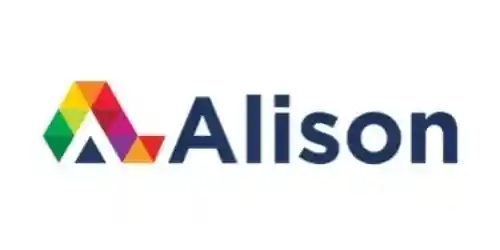
Appliance Testing Fundamentals 
This course on Appliance Testing Fundamentals provides an in-depth understanding of various testing approaches and teaches students to implement essential principles. Learn to research and build your own methods, complete risk assessments, classify complex electrical units and appliances, and use testing instruments. Understand shock risk and in-service inspection and testing processes. Enrol today and become proficient with these fundamentals. ▼
ADVERTISEMENT
Course Feature
![]() Cost:
Cost:
Free
![]() Provider:
Provider:
Alison
![]() Certificate:
Certificate:
No Information
![]() Language:
Language:
English
Course Overview
❗The content presented here is sourced directly from Alison platform. For comprehensive course details, including enrollment information, simply click on the 'Go to class' link on our website.
Updated in [June 30th, 2023]
This course on Appliance Testing Fundamentals provides an in-depth understanding of various testing approaches and teaches students to implement essential principles. It covers topics such as the characteristics and methods of portable appliance testing (PAT), the appropriate legal rules for PAT, risk assessments, appliance classification, basic visual assessment, testing and equipment inspection instruments, and how to test an electrical installation effectively. Additionally, the course also clarifies questions such as how can shock risk be understood and what are the in-service inspection and testing processes.
This course is ideal for those who are new to appliance testing and want to learn how to use and comprehend the fundamentals of appliance testing. It equips students with an understanding of the exact laws and regulations so that they can incorporate them into their decisions. Upon completion of the course, students will be proficient with the fundamentals of appliance testing.
[Applications]
Upon completion of this course, students should be able to apply the fundamentals of appliance testing to their own work. They should be able to understand the legal requirements for PAT, research and build their own methods, complete risk assessments, and classify complex electrical units and appliances. Additionally, they should be able to use and comprehend the instruments used for testing and equipment inspection, and understand the in-service inspection and testing processes.
[Career Paths]
One job position path that is recommended to learners of this course is that of an Appliance Testing Technician. An Appliance Testing Technician is responsible for conducting safety tests on electrical appliances and equipment to ensure that they meet safety standards. They use specialized testing equipment to measure the electrical current, voltage, and other parameters of the appliance, and then analyze the results to determine if the appliance is safe for use. They also inspect the appliance for any visible signs of damage or wear and tear. In addition, they may be required to document their findings and provide recommendations for repairs or replacements.
The development trend for Appliance Testing Technicians is expected to be positive, as the demand for safety testing of electrical appliances is expected to increase. With the increasing complexity of electrical appliances, the need for qualified technicians to conduct safety tests is also expected to increase. Additionally, as more businesses and organizations become aware of the importance of safety testing, the demand for Appliance Testing Technicians is expected to increase.
[Education Paths]
The recommended educational path for learners of this course is to pursue a degree in Electrical Engineering. This degree program typically includes courses in electrical circuit theory, digital electronics, power systems, control systems, and electromagnetism. Students will also learn about the design and analysis of electrical systems, as well as the principles of electrical safety. Additionally, they will gain an understanding of the principles of electrical engineering, including the fundamentals of electrical engineering, electrical power systems, and electrical safety.
The development trend of this degree program is to focus on the application of electrical engineering principles to the design and development of electrical systems. This includes the use of computer-aided design (CAD) and computer-aided manufacturing (CAM) tools to create electrical systems. Additionally, students will learn about the use of renewable energy sources, such as solar and wind power, and the development of energy-efficient systems. Finally, students will gain an understanding of the principles of electrical safety, including the use of protective equipment and the proper use of electrical systems.
Course Syllabus
Introduction to Portable Appliance Testing (PAT)
This Module will assist you in determining what portable electrical appliances are. This module will continue by providing you with information about portable appliance testing legislation and responsibility. We will assist you in organizing information related to consideration factors. Answering questions like: What law's should you consider?Course assessment
Course Provider

Provider Alison's Stats at AZClass
Discussion and Reviews
0.0 (Based on 0 reviews)
Explore Similar Online Courses

Free CCNA Security 210-260 Course: All About VPNs

Agile PM 101 - Learn the Truth About Agile versus Waterfall

Python for Informatics: Exploring Information

Social Network Analysis

Introduction to Systematic Review and Meta-Analysis

The Analytics Edge

DCO042 - Python For Informatics

Causal Diagrams: Draw Your Assumptions Before Your Conclusions

Whole genome sequencing of bacterial genomes - tools and applications

Pressure Force Motion and Humidity Sensors

Basic Electrical Engineering


Start your review of Appliance Testing Fundamentals